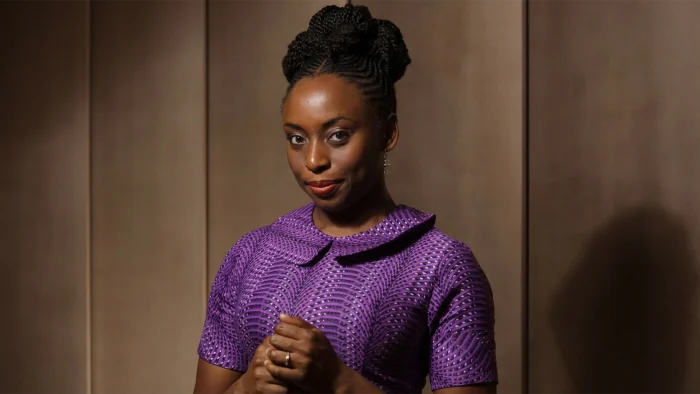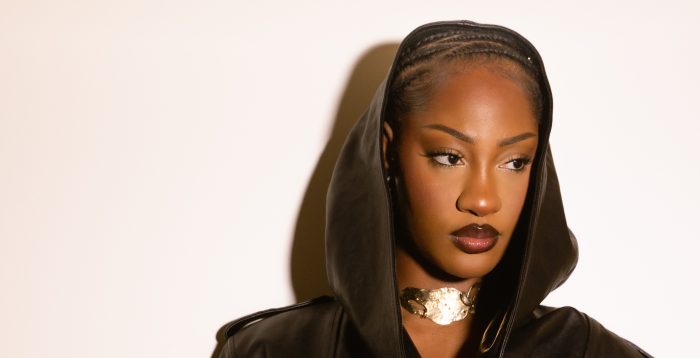When Chimamanda Ngozi Adichie took the stage in Euston, London, to deliver a TED Talk in 2012, few people, if any at all, would have predicted the lasting impact it would have on the global conversation around feminism.
[ad]
At the time, her previous novel, Half of a Yellow Sun, which was already six years in the market, had already gained critical acclaim, while her forthcoming novel Americanah was yet to be released. But it wasn’t her fiction that stole the spotlight that day.
Several insightful and humorous stories and about 30 minutes of sharp wit later, the iconic speech We Should All Be Feminists was born. And what a phenomenon it has turned out to be.
This talk, which has since become a cultural touchstone, challenged long-held societal norms and ignited debates on gender equality, empowerment, and inclusivity.
[ad]
Fast forward to today, and Adichie’s speech has amassed over 8.4 million views on the TEDx Talks YouTube page and an additional 5.3 million on the TED website. Its message transcended the lecture halls, weaving into the fabric of pop culture. Beyoncé famously sampled parts of the speech in her hit song Flawless.
Meanwhile, Maria Grazia Chiuri’s debut collection as luxury brand Dior’s first female creative director emblazoned Adichie’s words across a T-shirt.
[ad]
The speech has also been published as a book, extracts of which have made it to several global media platforms, further cementing its place as a cornerstone of modern feminist literature, used in classrooms and discussions worldwide.
With one speech, Adichie sparked a revolution that has unarguably cemented her place in history as an advocate of equality, empowerment, and inclusivity, birthing the global conversation about feminism and social justice.
Beyond her TED Talk, Adichie’s advocacy for women’s rights and equality has spanned continents and generations.
Journeying from podium to podium across the globe, while breaking a few records here and there in the process, Adichie has taken advantage of every opportunity she’s had to call for a new way of thinking about women, their roles in society, their rights, and the opportunities they get.
[ad]
She consistently calls for a re-examination of women’s roles in society and how these roles are shaped by cultural, social, and political forces. Her work dismantles the notion that women must conform to rigid gender expectations. Instead, she envisions a society where opportunities are not confined by gender. One of Adichie’s most poignant contributions to the feminist dialogue is her critique of gender-based violence.
Through her writing and public speaking, she has challenged the deeply entrenched societal attitudes that perpetuate abuse. She advocates fiercely for the rights of survivors and highlights the need for systemic changes to end violence against women.
[ad]
In addition to speaking out against abuse, Adichie has devoted considerable time to promoting body positivity as a vehicle for reclaiming agency over one’s body.
Her article for Elle magazine, in which she pointed out the complex relationship between beauty standards, fashion, and socio-political inequalities, highlights how these seemingly superficial industries often dictate women’s self-worth and autonomy.
[ad]
Adichie has received numerous honours for her contributions. She has been awarded the MacArthur Fellowship, the National Book Critics Circle Award, and the PEN Pinter Prize. She has also been named one of Time Magazine’s 100 Most Influential People in the World. Her fiction and non-fiction works, including Purple Hibiscus, Americanah, and Dear Ijeawele, resonate with women and men alike, encouraging readers to rethink deeply ingrained patriarchal structures.
READ ALSO: Chimamanda Adichie Makes ‘Forces For Change’ Vogue Cover
As a distinct, recognisable voice in global conversations, Adichie continues to inspire and empower women globally, challenging societal norms and pushing for a more equitable world with her writing and advocacy. The true measure of Adichie’s influence lies not just in accolades, but in the personal transformations her work inspires. In July 2024, over a decade after her TED Talk was first published, an Afghan teenager, Sinah Sadat Hussaini, posted a moving comment on YouTube: “As a 16-year-old Afghan girl, I was really inspired by these speeches. First, I read the book, and then I watched it again. I noticed that the same issues are happening in Afghanistan. Girls and women are also being deprived of education and work… Thank you for inspiring me to strive for more and better.” This testimony is just one of many, illustrating how Adichie’s message continues to resonate across borders and cultures, particularly in places where women’s rights are still under threat.
Her ability to weave the personal with the political sets her apart. Her works are grounded in the lived experiences of women, making her advocacy deeply relatable and her impact far-reaching. Whether through the pages of her novels or the stages of global conferences, Adichie consistently challenges the status quo, urging the world to reimagine a future where equality isn’t aspirational but foundational.
Undoubtedly, Chimamanda Ngozi Adichie remains an icon for women everywhere, a shining example of the transformative power of courage, creativity, and conviction.
ABOUT THE WRITER
Abraham Adegoke is a trained journalist with a BSc and MSc in Media and Communications. As an adjunct lecturer with a demonstrated history of working in the education management industry, Abraham enjoys writing about topical issues related to leadership, technology, and communications.








